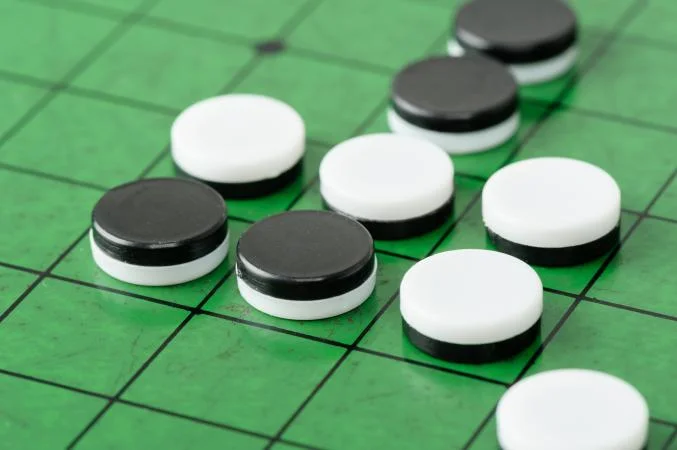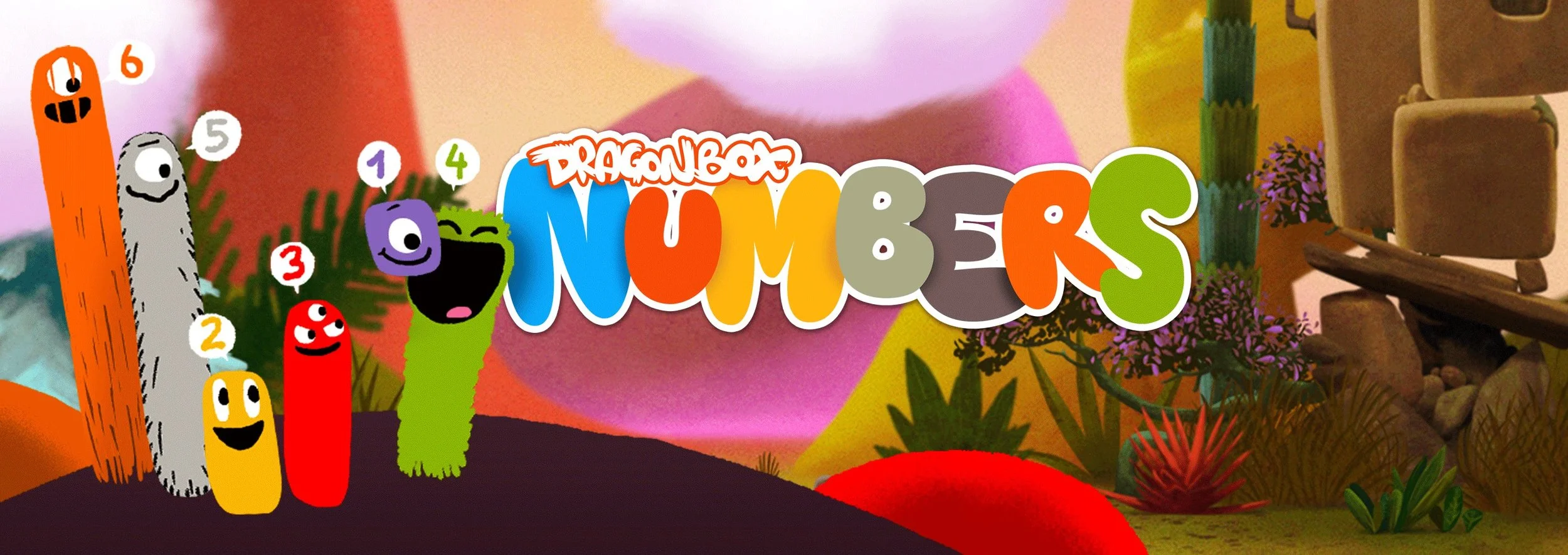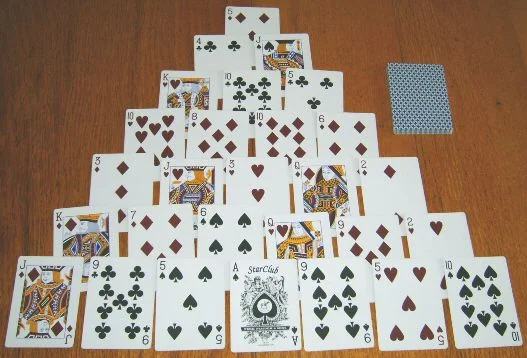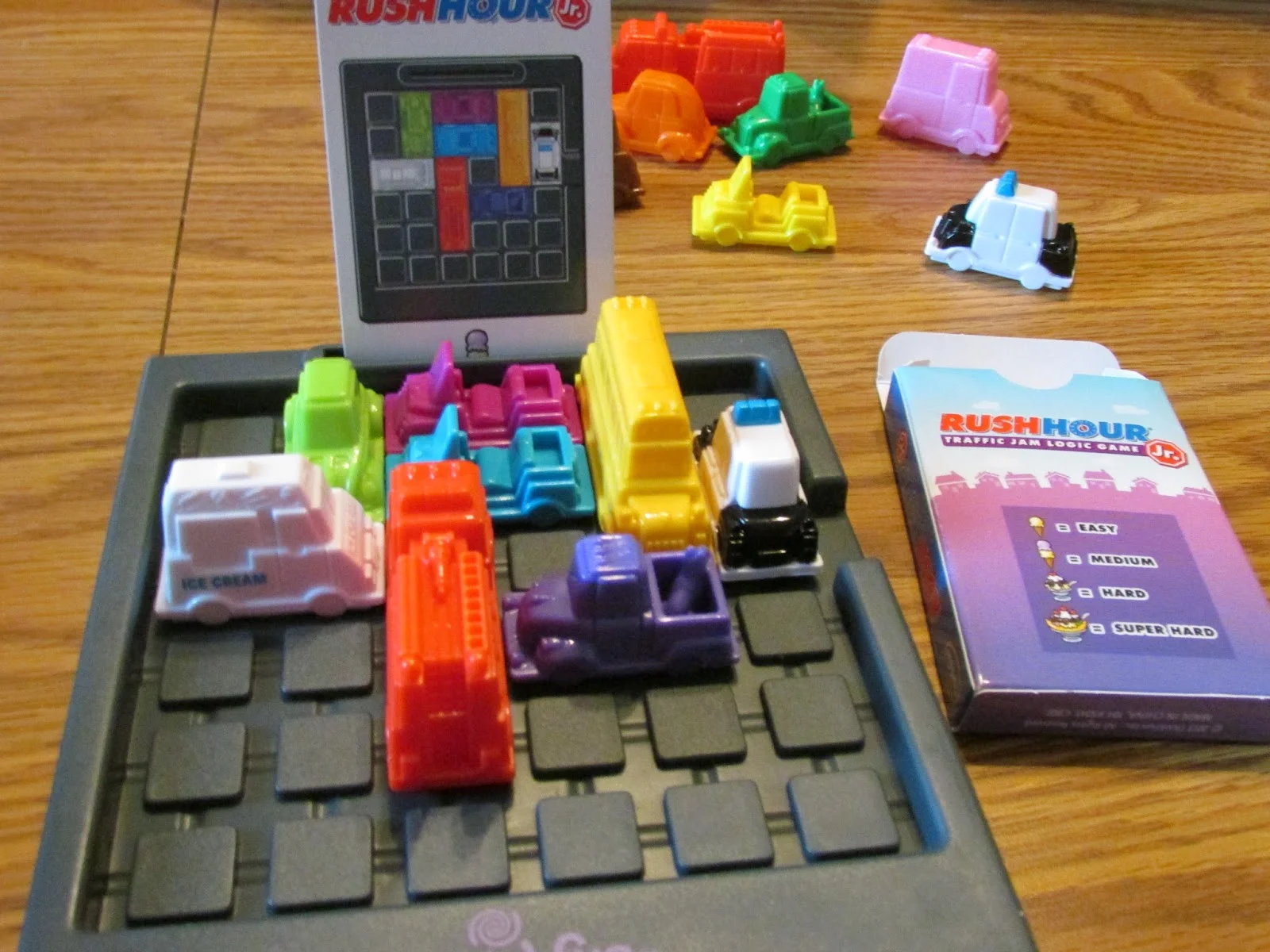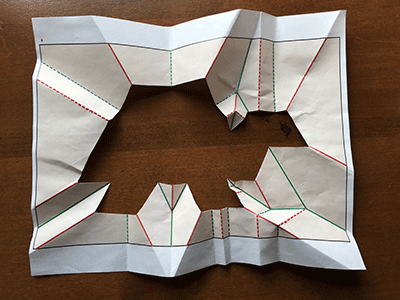I went on a trip with my son this past week, so I invented this game for those moments when even the iPad couldn't hold his attention any longer.
The goal of the Between Game is simple: yell out the same number at the same time. The only constraint is that you must each choose a number that is between the two previous numbers. That way, the range of numbers shrinks and shrinks until both players think of the same number.
When playing a game with your child, should you let them win? This is a common dilemma for any parent who routinely plays games with their kids. On one hand, you don't want to beat your kid at Go Fish or Battleship or chess every time; they'd get sick of losing and quit playing with you eventually. On the other hand, you don't want your child to get so accustomed to winning that they can't handle a loss.
Read MoreI have a skeptical outlook on the value of screen time. It's probably not hurting my kids too much, but it's probably not helping either. And the math apps I've found have mostly been underwhelming. Mostly, these apps focus on repetitive practice of math facts, which doesn't exactly sound like a rich mathematical experience.
But Dragonbox Numbers is a different sort of math app. I was skeptical at first, but the game won me over with its well-designed activities that get kids thinking about the relationships between numbers, rather than simply drilling math facts.
Read MoreI firmly believe that our kids learn best when they have casual, patient conversations about math with an adult that cares about them. But my new baby has been a stark reminder that I am not going to have time to talk deeply about math with each of my kids every day. Fortunately, I have some back-up plans.
Pyramid solitaire is a game my own parents taught me when I was in early elementary school, and I happily played it for years afterward. It's quick, it's tough to win, and all you need is a deck of cards.
Read MoreI love games. I mean, I started a weekly newsletter just so I had a place where I could talk about games with someone other than my poor wife.
But even I can't pull together the energy every day to get down a board game, dump out all the pieces, and play with my kids. Some days, I just don't have it in me.
I still want my kids to have some sort of mathematical experience each day, though. Usually, I find a way to ask a couple of math questions during dinner or bath time.
But what about parents who are a little math-phobic, or just unsure of what questions to ask? For those parents, I have a great recommendation: Bedtime Math.
Read MoreOf all the games I've recommended so far, Mancala is the one that I recall most fondly from my childhood. I vividly remember playing match after match with my friend John, arguing over strategy and trash-talking the way that only eight-year-olds can.
I loved this game as a kid for the same reasons that I love it as a parent: Mancala is a breeze to learn, easy to set up, play, and clean up, and contains far more strategy than you might expect.
Read MoreSometimes as a teacher, I find myself with a classroom full of kids and nothing to do. Maybe the fall musical ended at 2:55 but school doesn't let out until 3:15.
Whenever this happens, I pull out the 100 Game. This game can be taught in two minutes but always keeps my students occupied for at least twenty as they battle each other and develop strategies to try to unseat me, the 100 Game World Champion.
Read MoreDuring winter break, our family drove to Atlanta to visit some family and friends. I wanted to get a game that my son J could play in the car, so I picked up Rush Hour Jr. It's a lovely little solitaire logic game that travels easily in a car or on a plane.
Read MoreLast week, my city of Birmingham was predicted to have 0.5 inches of snow, so naturally my school district shut down for two and a half days. Welcome to Alabama.
By the last day, I was going pretty crazy trying to think of activities for my kids to do, so I pulled out an activity I've used with kindergarteners and 8th graders alike: the fold-and-cut challenge
Read MoreWant to hear something crazy? Back in the 80s, researchers watched a bunch of 4-year-olds play with blocks to see how sophisticated their block play was. Were the kids stacking the blocks at random without regard to their shapes, or were they using the properties of the blocks to make sturdy, steady castles and towers?
When the researchers checked in on those same kids in high school, they found out that the kids who had been more sophisticated block builders at age 4 were more likely to take higher-level math courses and to perform well within their courses.
Seems bizarre, right? But actually, the connection between block play and mathematical ability is one of the most heavily researched areas of young children's development. Block play is heavily tied to spatial reasoning, which is how kids and adults think about objects in relation to each other.
Read MoreThis week's "game" is actually a book by one of my favorite authors and math thinkers, Christopher Danielson. Christopher is the creator of the Talking Math with Your Kids website, where he has collected all sorts of great resources and conversation prompts for you and your kids. Many of my ideas about mathematical talk come from Christopher, so if you like what you read here, be sure to check out his site.
Not only that, Christopher has a side business making beautiful mathematical toys for kids. I own a copy of just about every set of blocks that he has made, and I can't recommend them highly enough. On to the book!
Read MoreSET is a family favorite for me because it is equally challenging for young kids, teenagers, and adults. Also, any amount of people can play, and folks can walk by and join the game whenever they like. It's perfect for a big family gathering as well as a fun one-on-one conversation with your child.
Read More

